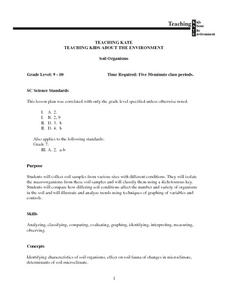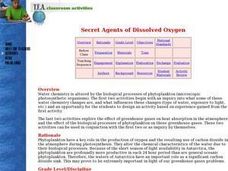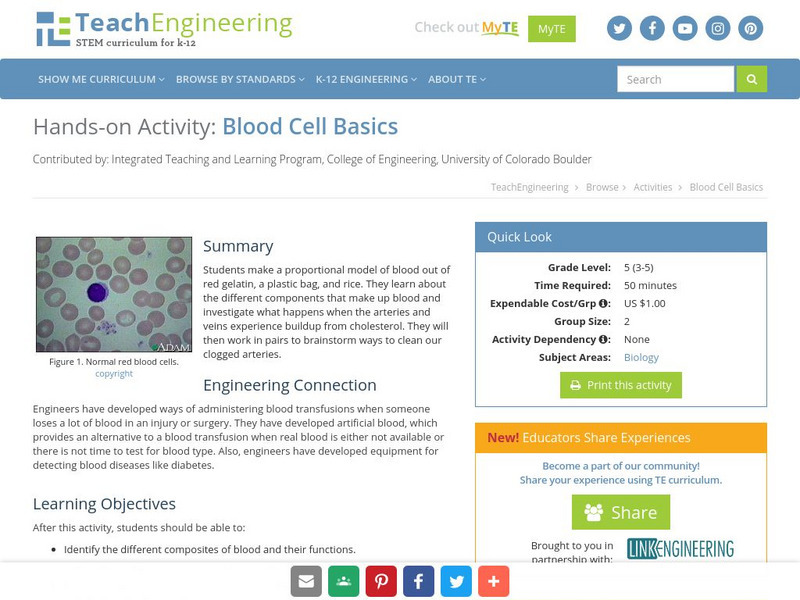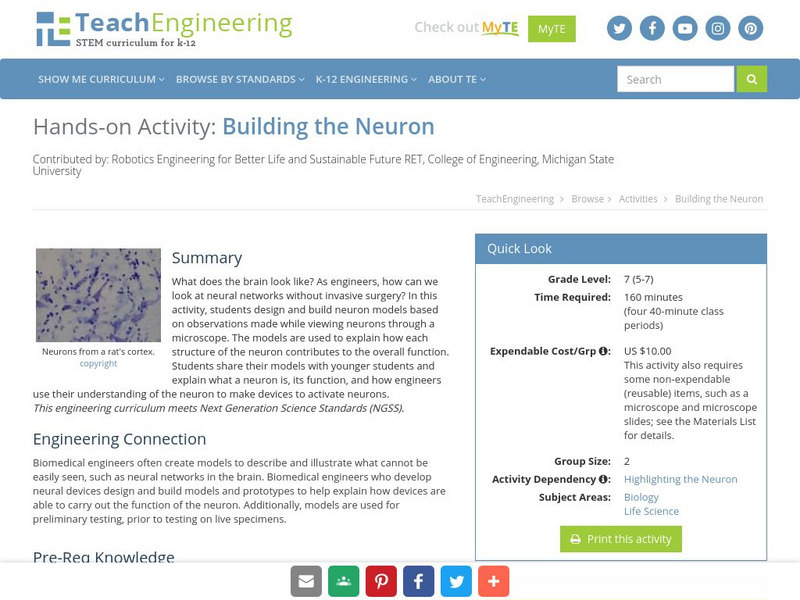Curated OER
Ecosystems
Sixth graders perform various labs, create presentations, and do hands on activities to explore the ecosystem.
Curated OER
Dishing the Dirt Part 1
Students create a soil center on their school grounds. They begin to write in their science journals. They participate in an experiment that helps the community begin their own gardens.
Curated OER
What Repair Proteins are Expressed in C-Ferns After Exposure to Varying Amounts of UV Radiation?
Young scholars examine the life cycle of c-ferns. They complete experiments on the organisms exposing them to differnet amount of UV radiation. They collect data and analyze their results.
Curated OER
Soil Organisms
Pupils work together to collect soil samples from different locations. In the samples, they identify the macroorganisms and classify them. They identify the conditions that affect how macroorganisms grow. They also analyze and identify...
Curated OER
Secret Agents of Dissolved Oxygen
Students determine the changes in different types of water in a sealed container over time. They investigate how to measure dissolved oxygen, temperature, and carbon dioxide with calculator or computer probe-ware. Students determine the...
Curated OER
Characteristics of Living Things
Seventh graders identify the characteristics of living and non-living things. In this biology lesson, 7th graders define vocabulary words as they go through the lesson. They answer a crossword puzzle after class discussion.
TeachEngineering
Teach Engineering: Grow Your Own Algae!
Students discover how tiny microscopic plants can remove nutrients from polluted water. They also learn how to engineer a system to remove pollutants faster and faster by changing the environment for the algae.
TeachEngineering
Teach Engineering: Particle Sensing: The Coulter Counter
Students are presented with a short lesson on the Coulter principle, an electronic method to detect microscopic particles and determine their concentration in fluid. Depending on the focus of study, students can investigate the...
TeachEngineering
Teach Engineering: Blood Cell Basics
In this lesson students learn about the circulatory system and how it relates to engineering. Then in a hands-on activity they create a model of blood. Students also act out cholesterol in a blocked artery and look at blood cell in a...
TeachEngineering
Teach Engineering: Building the Neuron
In this activity, students design and build neuron models based on observations made while viewing neurons through a microscope.
TeachEngineering
Teach Engineering: Imaging Dna Structure
Students are introduced to the latest imaging methods used to visualize molecular structures and the method of electrophoresis that is used to identify and compare genetic code (DNA). Students should already have basic knowledge of...
PBS
Pbs Teachers: Scientific American: Alien Invasion: Aquarium Capers
Evaluate the effectiveness of snails as a biological control to combat the spread of an alien alga in the Mediterranean. Grow and culture algal "mats" on microscope slides to observe the grazing behavior of pond snails.
Curated OER
Smithsonian Institution Archives: Margaret Morris Hoskins (1886 1955)
After teaching in the department of microscopic anatomy at the University of Arkansas Medical School, 1921-1925, Margaret Morris Hoskins (1886-1955) joined the department of dentistry at New York University












